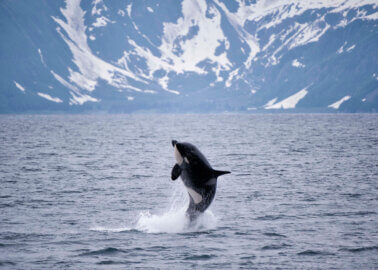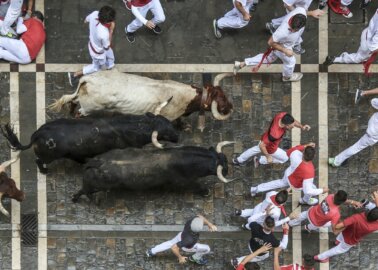VIDEO: ‘Don’t Fence Me In’ – a Life in Lockdown
Many of us are back in lockdown, with greater restrictions now in place across the UK and elsewhere around the globe. We find ourselves pacing back and forth, staring longingly out the window, missing our friends and family. But while it’s a difficult situation, we know it’s temporary.
For some, though, a lockdown isn’t just a brief moment in time – it’s never-ending.
https://www.youtube.com/watch?v=cTtpMzYOYcQ
This video was made in partnership with Lightfarm, a world-class animation studio that has donated its time to this cause.
Think of Nanuq, the beluga whale who was abducted from his ocean home when he was just 6 years old and trapped in SeaWorld’s watery prisons until he died 25 years later.
If you’re a leader in vet “care” why did you allow Nanuq’s infection to get so severe that it was FATAL? #AskSeaWorld pic.twitter.com/t66ArzuFqc
— PETA (@peta) March 27, 2015
Or Kumbuka – a silverback gorilla who made headlines after escaping from his enclosure at London Zoo in 2016 – who died last year after a life in confinement, being gawked at by a constant stream of visitors and having every aspect of his life controlled by humans.
He died in the place he so desperately wanted to get away from, without ever experiencing the freedom of his natural home in the forest.
Kumbuka the lowlands silverback gorilla (Photo by Tony Sellen) http://t.co/I4hwvezYjU pic.twitter.com/lW3Y4hKNDF
— Flickr (@Flickr) May 26, 2015
Remember Morgan, the young orca who was betrayed by the people who were meant to help her? She has been languishing in captivity at Loro Parque, the marine abusement park in Tenerife, Spain, for years – and gave birth to a calf in 2018.

Like her, her daughter Ula is now housed in a prison-like tank filled with chemically treated water and will almost certainly be forced to perform tricks for human entertainment.
World-renowned oceanographer Jean-Michel Cousteau said an orca being held in captivity is “like a person being blindfolded in a jail cell”.
Animal Prisons
Zoos are in the business of misery and death – from taking wild animals from their homelands and disrupting their familial bonds to breeding them in captivity only to subject them to a lifetime of imprisonment.
In zoos, their every move – including what to eat, when to sleep, and who their mate is – is controlled by humans. They can’t roam vast distances or do many of the other things that are natural and important to them. Most aren’t even allowed to stay with their families, as young animals are commonly transferred, traded, or sold to other zoos.
The daily stress and lack of stimulation often leads to abnormal and self-destructive behaviour – including pacing, walking in tight circles, rocking, swaying, and self-mutilation – a condition known as “zoochosis”.
Marine Abusement Parks
While orcas in nature form complex relationships, work cooperatively to find food, and traverse up to 140 miles of ocean every day, those at marine parks like SeaWorld are housed in incompatible groups in cramped tanks and have even been given the drug diazepam to manage stress-induced aggressive behaviour. Forty-one orcas and numerous other animals have died on SeaWorld’s watch – far short of their natural life expectancies.
What We Can Do
Once this period of social distancing is over and we regain our freedom of movement and ability to socialise with our loved ones, let’s not forget what confinement feels like – and let’s refuse to support any establishment that imprisons animals. Unless we make compassionate choices, they’re doomed to die behind bars or in barren tanks.
TUI sells tickets to SeaWorld, supporting the abuse of all the animals held captive there. It’s time that the travel provider followed in the footsteps of numerous other companies – including STA Travel, Virgin Holidays, British Airways Holidays, TripAdvisor, Airbnb, and Booking.com – and severed ties with SeaWorld:



